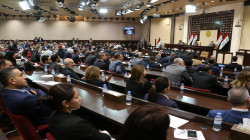Bill on "Iraqi families destroyer" in the Parliament awaits approval

Shafaq News / "My daughter's happiness was ruined," said Abu Mohammed, talking about the tragedies his daughter suffered due to cyber-extortion that ended in posting her photos on several social media sites.
According to Abu Mohammed, his only daughter had a happy, peaceful engagement, until she lost her phone, after which she was electronically blackmailed.
After Abu Mohammed's family refused to pay the blackmailers, they posted their photos on several sites. They sent them to the daughter's fiancé, as well as pictures of other women who attended the Nishan (the groom and his family's gift to the bride), causing a major problem.
The problem worsened after her fiancé decided to break up the engagement and end the relationship, although he knew that she had lost her phone and was aware of everything that had happened. He blamed her for losing the phone and the spread of her and the other girls' photos, according to the father.
Abu Mohammed attributed his daughter's problem and the loss of her right to, "The lack of censorship on social media sites, especially since the weak-spirited can do everything from blackmail, bargaining, and others."
What Abu Mohammed's family went through due to cyber-extortion is an example of many similar cases, some of which ended with the murder of the victim after the "family photos leak scandal".
An uncontrolled phenomenon
Cyber-extortion in Iraq, practiced by specialized gangs and individuals for financial gain and other purposes, is on the rise at a time when security agencies are struggling to reduce it. However, their weak potential and modern means limit their ability to do so.
According to private information, Iraq witnessed thousands of "cyber-extortion" cases during 2021, mostly due to the improper use of "social media" sites, the lack of oversight among some families of victims, and high unemployment rates that contribute to the rise in community crime.
According to official statistics obtained by Shafaq News agency, Nineveh alone has recorded more than 1,000 cases of cyber-extortion over the past year, i.e., at least three cases have been officially recorded every day, with other hundreds of unrecorded cases. Also, many women have paid money not to be caught up in a photo scandal.
Enact deterrent laws
Nayif al-Shammari, a member of the Iraqi Parliament, said it was time to legislate the cybercrime bill to curb extortion, which had literally "destroyed Iraqi homes", stressing at the same time the need to, "Monitor social media sites."
"It is not just about blackmailing and defamation others, as some sites promote extremism and terrorism publicly without control or punishment, which is very dangerous," al-Shammari told Shafaq News agency.
"The Cybercrime bill will not fight freedom of expression. On the contrary, it is formulated to monitor social media sites and control their users to prevent moral degradation," he said.
"Several deputies have been working on this law for years, and they have prepared its paragraphs in the Security and Defense Committee, with no paragraph limiting freedom of expression," al-Shammari continued, "This law will restrict pornographic and terrorist websites, prohibit using aliases, and limit the access to some sites to certain age groups."
"The bill has been greatly criticized, but contrary to what is being said, it does not restrict freedoms but guarantees rights, especially women's rights. Furthermore, the law's initial name was the Informatics Crimes Act, but it was changed to the Cybercrime Act," he added.





